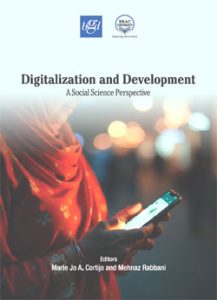A Framework to Assess Digital Transformation in a Technologically Less-Developed Country: Challenges and Opportunities in Bangladesh
A Framework to Assess Digital Transformation in a Technologically Less-Developed Country: Challenges and Opportunities in Bangladesh
 Sajjad Zohir
Sajjad Zohir
The journey towards a ‘digital world’, is often perceived in terms of three sequentially linked ‘phases’, digitization, digitalization and digital transformation. This paper considers digitalization as the process that transforms an analog world into a digital world.
Read More



